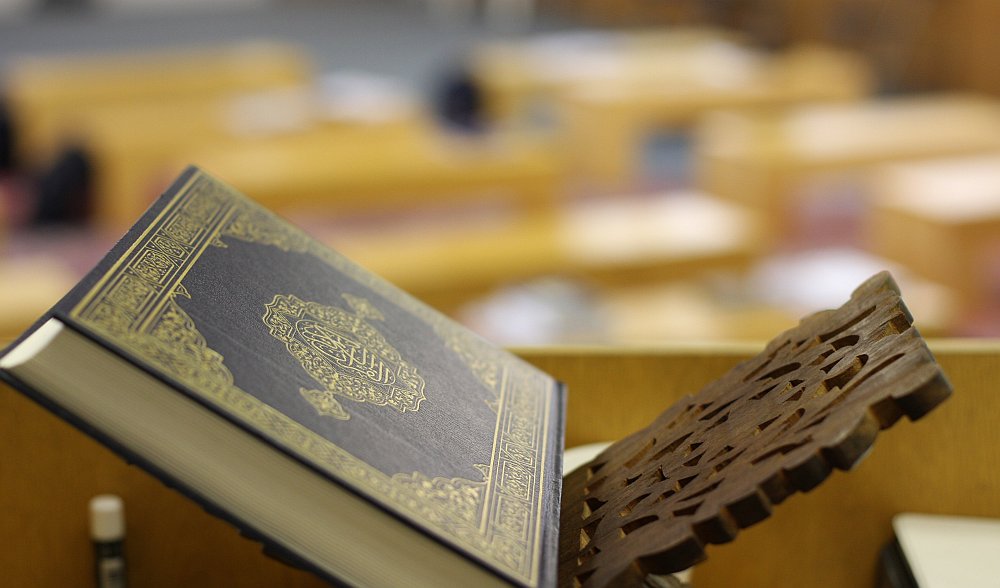The Qur’an and the Sunnah of the Prophet (peace and blessings of Allah be upon him) are the primary sources from which Islamic beliefs and teachings are established.
The Sunnah of the Prophet (peace and blessings of Allah be upon him) is preserved for us in the Hadith – the Prophet’s reported statements, actions, and tacit approvals which have been narrated and preserved in writing.
Thus, it is a condition that the authenticity of a hadith must be verified and established for that hadith to be valid as evidence for matters relating to Islamic beliefs or Islamic Law.
The authenticity of the hadith is determined by a rigorous study of its chain of transmission and its text. Among the conditions of authenticity are that there must be no break in the chain of narration, all of the narrators must be reliable, and the text of a given narration of a particular hadith text must correlate with other narrations of the same text.
Hadiths that conform to the conditions of authenticity are graded as sahih (authentic) or hasan (good), depending on the strength of their transmission.
Hadiths that do not conform to the conditions of authenticity are classified as da`if (weak), munkar (denounced) or mawdu` (fabricated).
Furthermore, a hadith is declared as weak for a number of reasons, for instance if there is a problem with one of the narrator’s memory or if there is a break in the chain of transmission.
A hadith may be mildly weak if the only problem is that a narrator of confirmed honesty is known to make unintentional mistakes in relating from memory on occasion.
A more serious weakness is where the reputation of a narrator is not established. A hadith is seriously weak if there are actual gaps in the transmission.
A hadith is declared munkar when there is strong evidence to show that the Prophet (peace and blessings of Allah be upon him) did not make the statement.
A hadith is declared as fabricated if a narrator is known to have been a liar. Scholars agree that only authentic hadith may be used to establish matters of creed and that hadith which are denounced or fabricated are never to be used for any purpose.
Therefore, scholars disagree as to whether mildly weak hadith can be used for establishing the virtues of good deeds; for instance, hadiths that encourage prayer, charity, and other matters already established in Islam.
Below are three views regarding this issue:
1. Mildly weak hadith can be freely used to establish the virtues of deeds.
This is widely regarded to be the majority opinion on the matter. The famous Hadith scholar and jurist, An-Nawawi writes in the introduction to his Forty Hadiths: “Scholars agree that weak hadiths which speak merely about the virtues of deeds can be cited.”
Scholars who hold this view argue that when the content of a hadith text has no implications for matters of religious doctrine or law, the level of rigor in determining its authenticity is not as severe.
When a hadith is merely speaking about the blessings received by doing an already established good deed like prayer, fasting or kindness to neighbors, then it is introducing nothing new to the religion, but merely encouraging wholesome religious practices.
Such hadiths do not declare things lawful or unlawful, but rather affirm what is already established by the faith.
2. Mildly weak hadith cannot be used for anything.
This is the opinion of Imam Muslim, the compiler of Sahih Muslim, the second most reliableHadith compilation. He writes in his introduction to that work:
“It is imperative for everyone to distinguish authentic narrations from those which are unauthentic, and reliable narrators from those who are questionable. This is to avoid narrating anything other than what is authentically established from its sources.”
This opinion has been attributed to Imam Ahmad ibn Hanbal. The Hanbali scholar Ibn Muflih writes:
“It is attributed to Imam Ahmad that he would never use a weak hadith for establishing the virtues of good deeds or meritorious acts.” (Al-Adab ash-Shar`iyyah, 2/304)
This is also the view adopted by ibn Hazm.
3. Mildly weak hadith can be used for encouraging good deeds if certain conditions are met.
These conditions are enumerated by ibn Hajar al-`Asqalani as follows:
1. The hadith should not be seriously weak. It should not be the narration of someone known to make many or very serious mistakes in narration. It should certainly not be the narration of someone who is accused of making deliberate falsifications.
2. The hadith must be addressing something which is already firmly and generally established in Islamic Law. It cannot in any way establish something new.
3. Those who act upon the hadith should not cultivate a firm belief in their hearts that what the hadith says is true. They should be aware of the possibility that the Prophet (peace and blessings of Allah be upon him) may not have said those words, and they should be wary of attributing to the Prophet something that he did not say.
Ibn Taymiyah points out an important clarification to the second condition when he says:
“If the weak hadith speaking about the virtues of a good deed introduces any quantitative statement or any specification, then it is impermissible to use it.
For example, this would be the case if the hadith specifies a particular time for reciting the Qur’an or a specific chapter or verse, or if it gives a particular way of performing an act.” (Majmu` al-Fatawa, 18/67)
It remains to say that what is authentically established to be from the Prophet (peace and blessings of Allah be upon him) is more than enough for us never to need mentioning any weak hadith.
We should be wary of the many dubious statements circulating these days on the internet that are being attributed to the Prophet (peace and blessings of Allah be upon him) and to our faith. And Allah is the giver of success.

